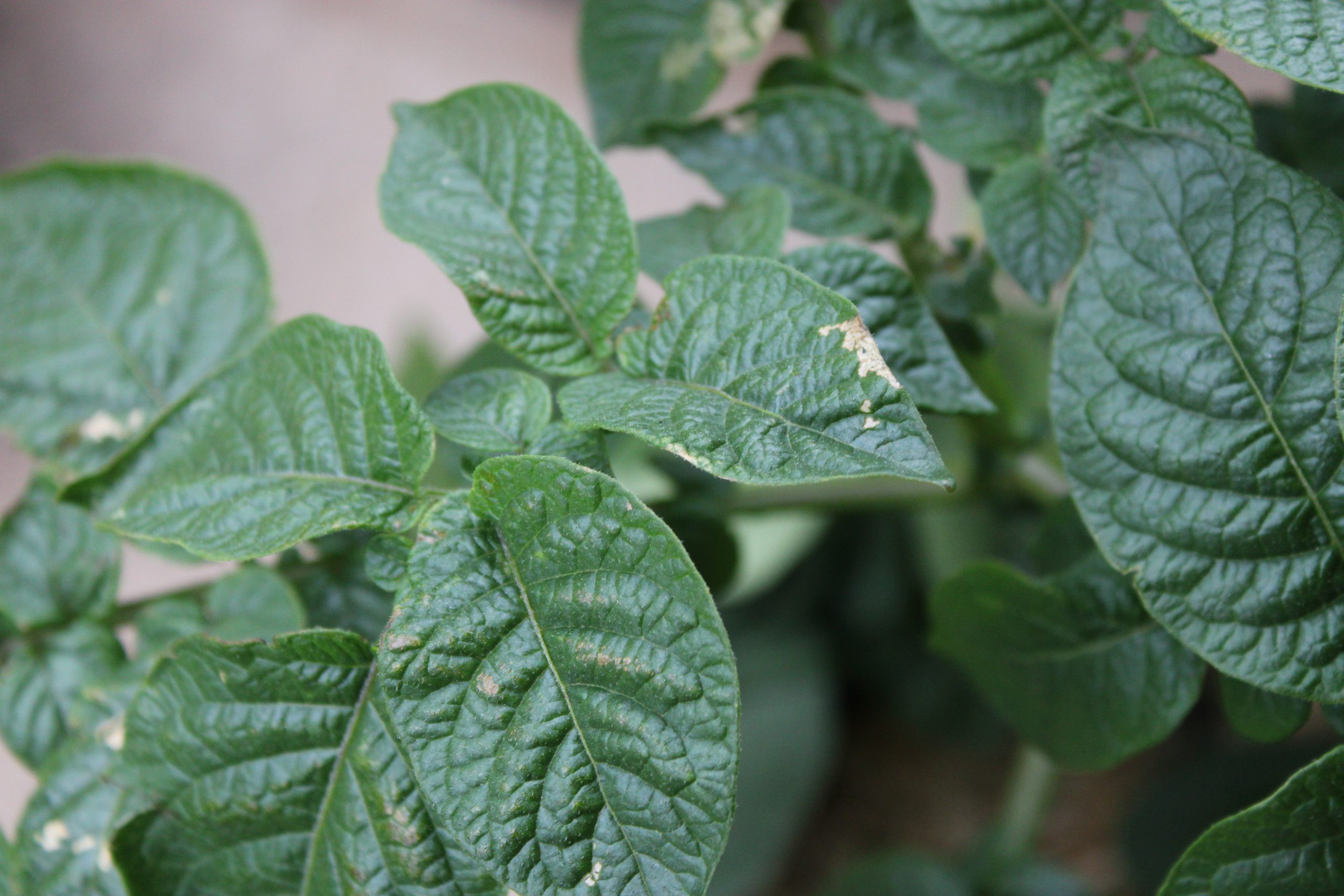As a person with significant Irish genetics, I have a fear of the the potato blight. Today, I got to confront my enemy. So what is a poor boy of Irish decent to do in the face of potato blight?
Dealing with Potato Blight
This is a blend of two methods. One that I have a bit of faith in and another that I have a lots less faith in. We are going to look at the one I have a lot less faith in, the Cornell Formula. After that we will look at Aspirin-like substances.
Cornell Formula
This is formula developed by Cornell. It was noted in the paper…um…yeah. Honestly, I can’t find a scientific, academic or drunken researcher’s ranting to source this formula at all. Wives tales a plenty but none them got a PhD in Botany. Am I saying this is complete bunk? No, wives tales are not always wrong. Heck, my content has a healthy dose of wives tales content. I just try not to get attached to my ancient hack. I try to base my practices on agriculturalist, academic and people with letters after their names. Taking my best stab at it is the motto around here.
The basic idea of the Cornell Formula is that you take something like a 1-2T Baking Soda per gallon of water, with or without a couple of drops of some kind of soap. Spray it on your plants to prevent and contain the blight.
Soap
I would argue to avoid the soap. The rational for adding soap to the leaves is that it prevents the substances from washing off the plant. Now think about this for a minute. You are growing a life form that takes sunshine and turns it into sugar. It also sucks up CO2 through its leaves and stems to do this. You are going to take a substance and spray it on the plant that will add a layer of material between the leaves, the sun and the air. A layer of material for the plant to have to work through to collect CO2. Does this seem like a good idea?
If you want to try it. Make sure it is not going to rain in the short term and spray it them. There will likely be residue on the leaves after so it isn’t washing away so you don’t need the soap.
I suspect the idea of using soap comes from the fact that so many lawn sprays want a soap added to them to hold the material on the plants. Seems like a simple leap of logic to say that should work here too.
Why I suspect that it does not is that many of these lawn chemicals are fats or fat soluble, not water soluble substance like aspirin or baking soda. You add the soap to emulsify them together like your Italian Salad Dressing. You don’t want it floating on top as you try to spray it. The water is a carrier for the fatty concentrate.
Baking Soda
Will baking soda work? I don’t know. It’s the most base thing we have in the kitchen, so there may be some real disruptive capabilities as most things in the garden are naturally acidic. I would warn you that spraying on your potatoes might give you different problems, such as scab as it likes more neutral soils hence why we grow spuds in acidic soil. Baking soda will eliminate some of that acidity.
Anyway, minus the soap, I thought I would give it a try. My blight is young after all.
Aspirin Like Substances
I stumbled on an article from the USDA? Apparently, aspirin-like substances can help boost defensive responses of potato plants to certain diseases and pests. Does that mean aspirin, itself will. I don’t know. Also the disease they were looking at is not the one, I am fighting. It implies that it improves against microbial and insect attacks but who knows. I figure the closest aspirin like substance I have is aspirin so I would give it a shot. Like most things that are based on a little bit of science, the specifics are much more nebulous. Let’s give it a try.
I started with two pills each at 325mg. I smashed them up and added them to my baking soda. Mixed everything up and sprayed everything. Since potatoes are related to tomatoes, eggplant, peppers and tomatillo, I’ll give them a spray as well.
What’s the worst thing that can happen? Please don’t answer that question.
Putting on the Mad Scientists Gloves
Here is a bit of my blight on my second group of potatoes. These were planted on March 20.
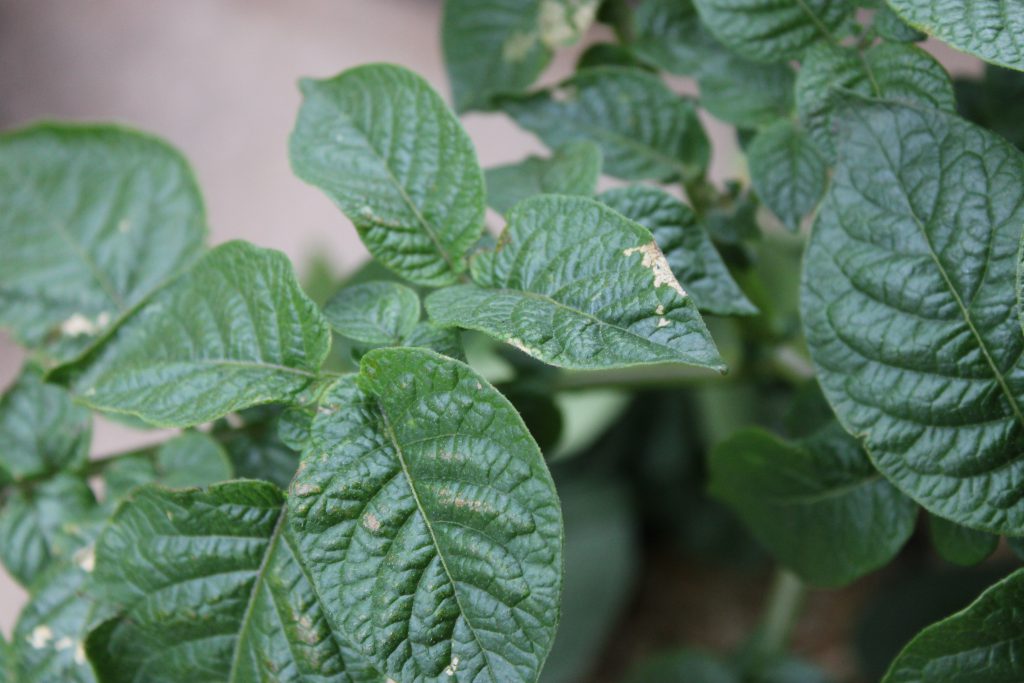
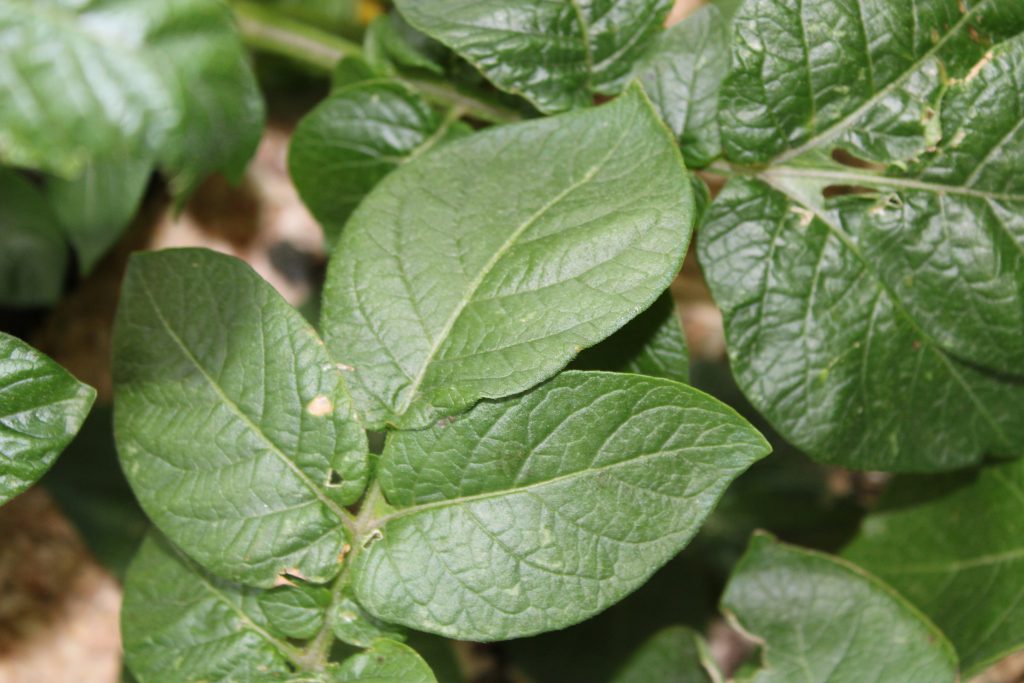
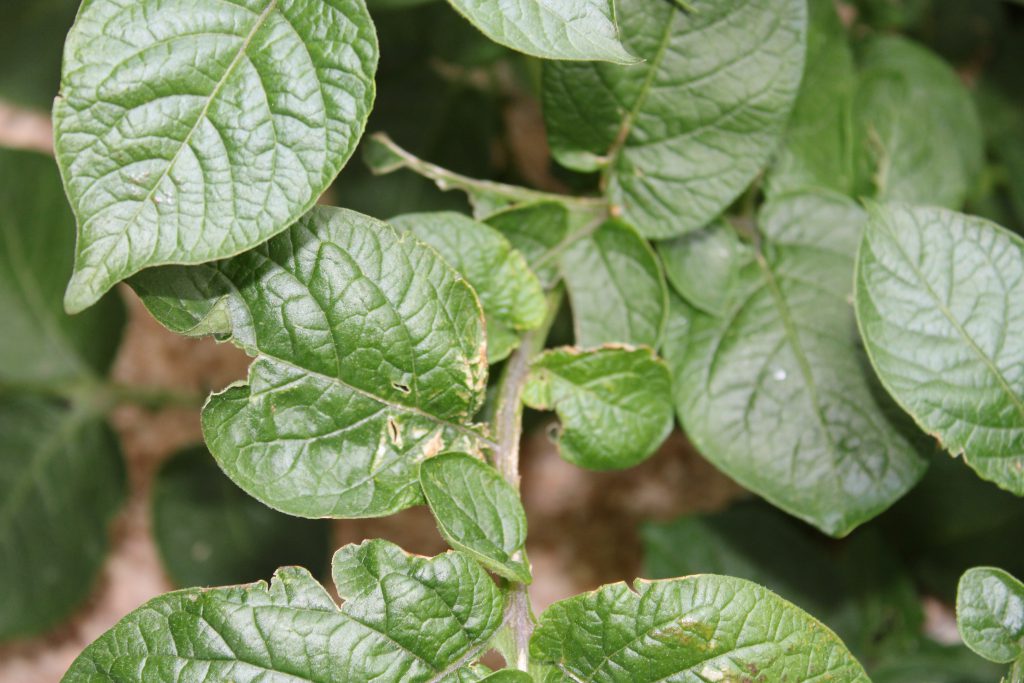
No too bad but I want to try to contain it before it eats up my plant.
First, I am going to cut away any hard hit area to try to help contain the spread by eliminating sources for the spores.
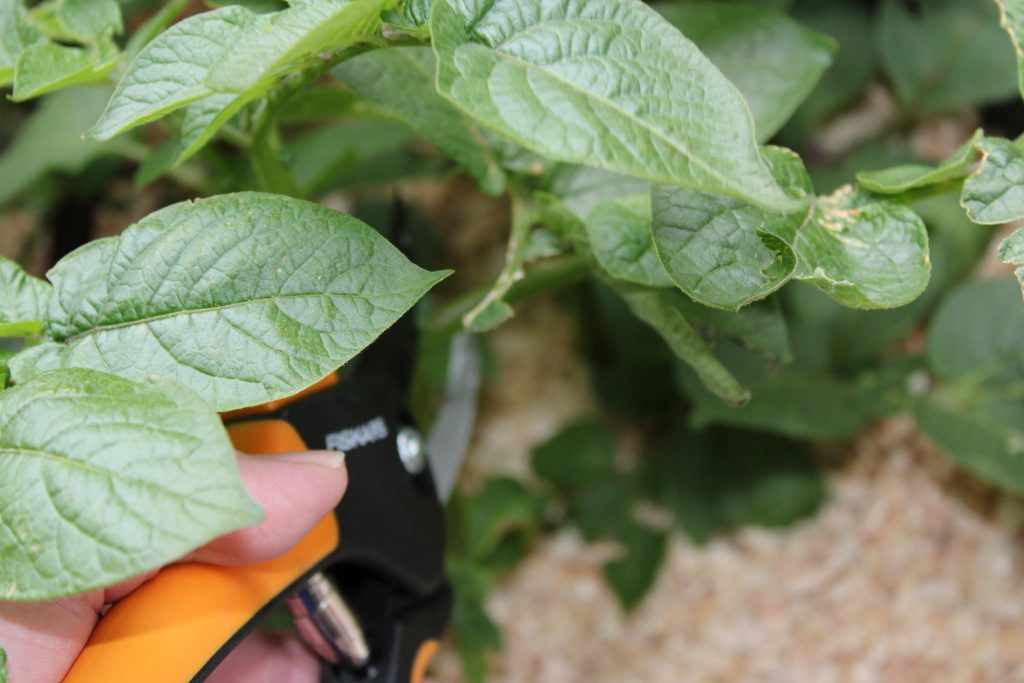
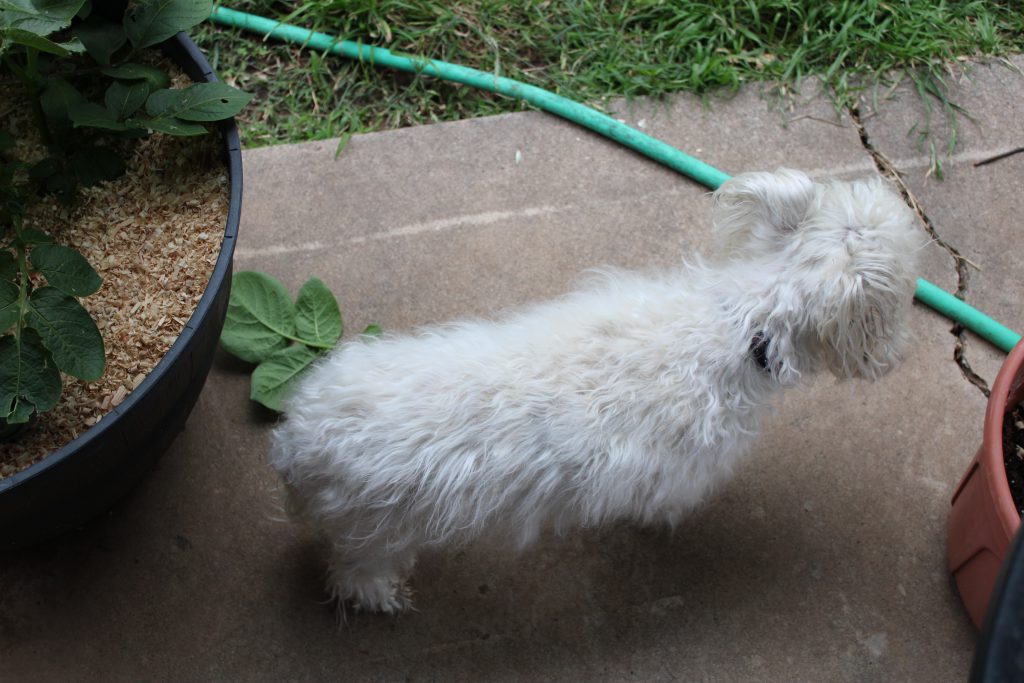
Next, we will get all those clippings up in a pile and pitch them. Yes, pitch them. Don’t burn them. Don’t compost them. Throw them away.
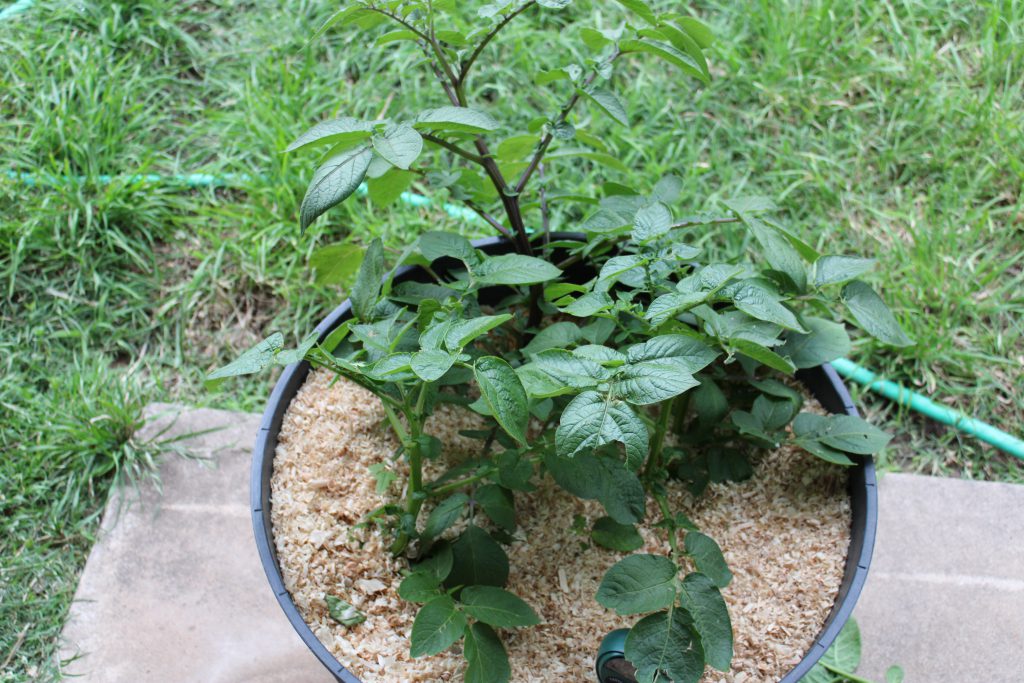
It’s all ready for its date tonight. All trimmed up pretty. Finally shake your solution up then spray. Shake between each plant to suspend all the floating and sinking stuff.
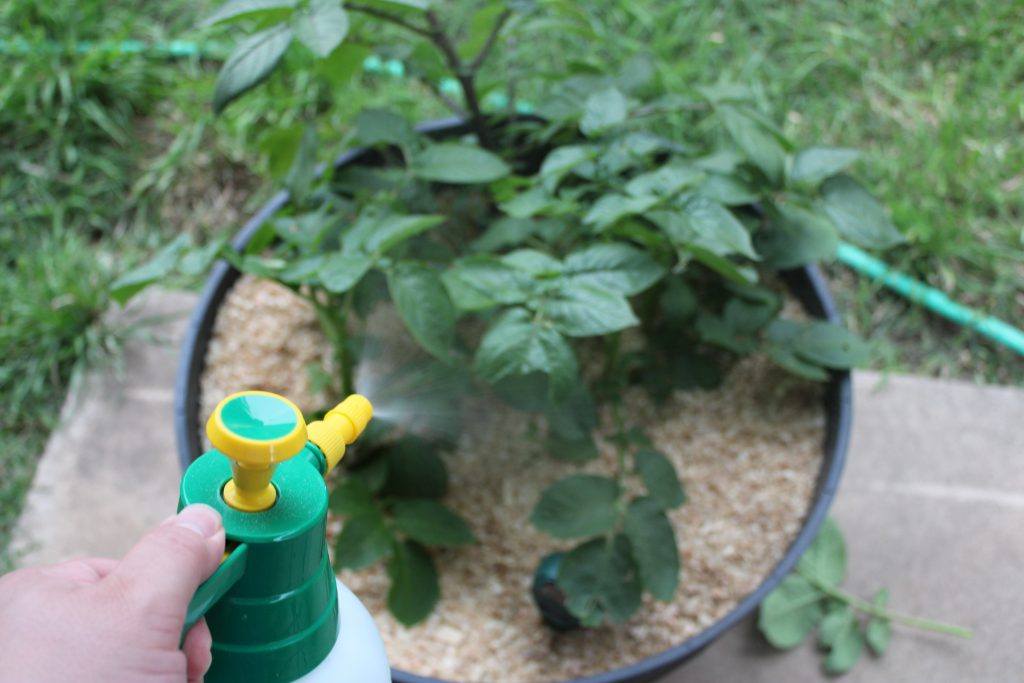
Has it worked?
In short, not much.
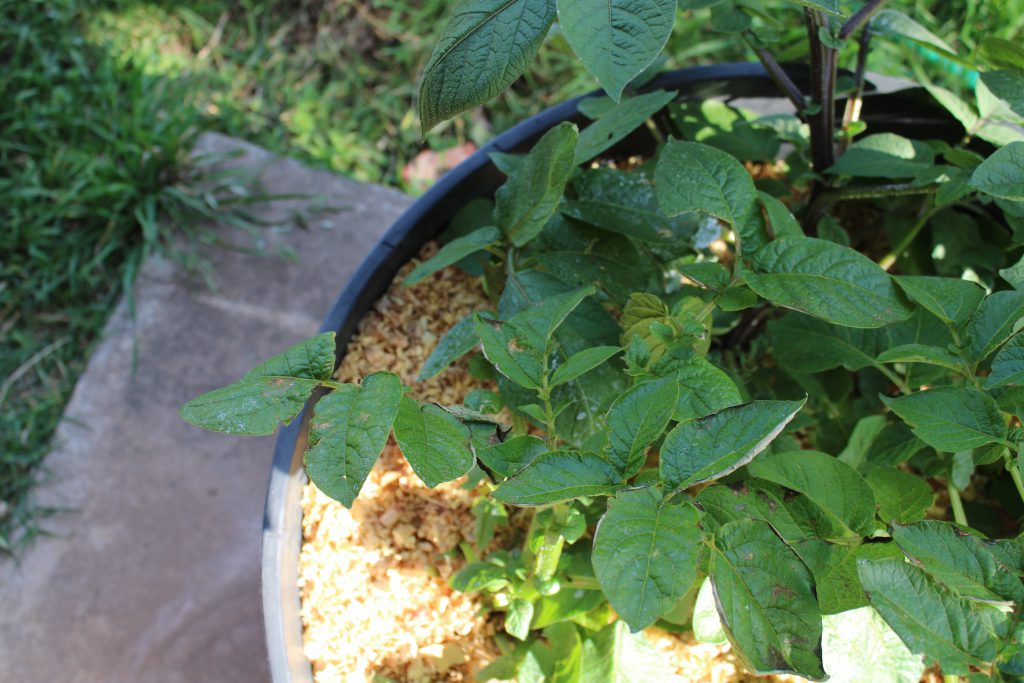
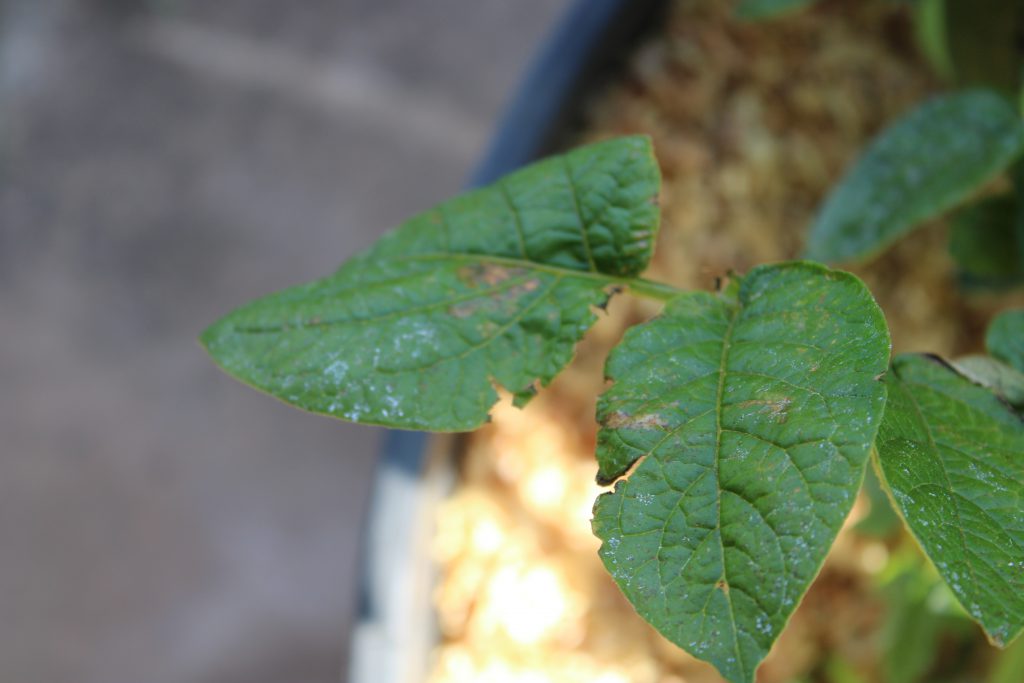
Now, we got a decent idea of how effective this combination of stuff. So what are we going to do to stop this?
I will say as a side note that for anyone who is worried about this spray washing off on dry days. Here is a picture after it dried.
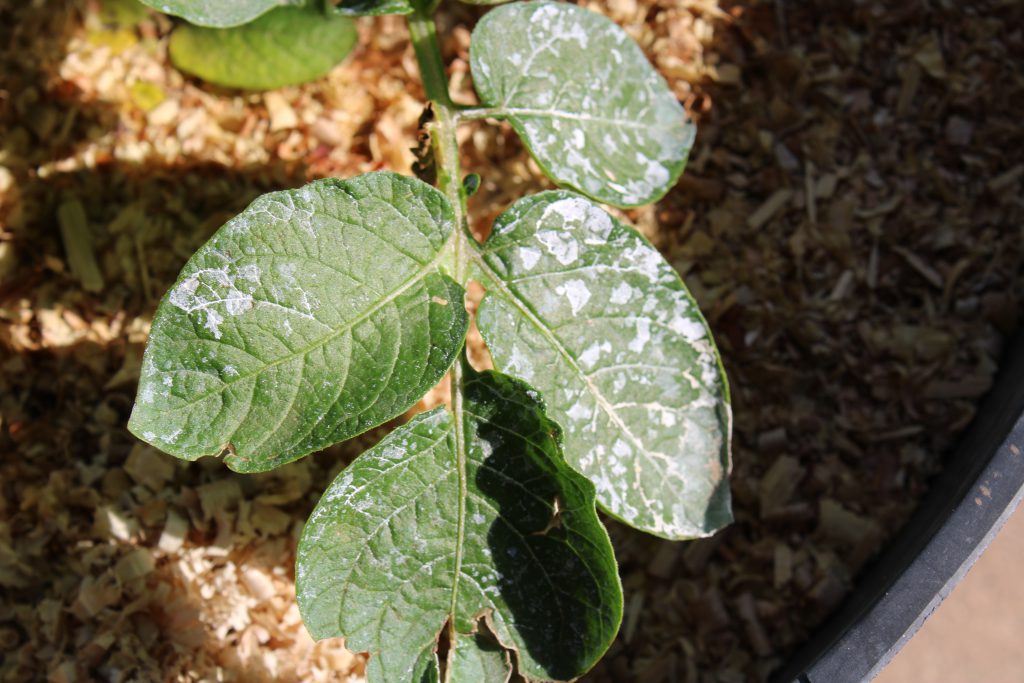
Just saying that looks pretty well attached to the leaves. I am not going to leave this on for more than a day but it just proves you don’t need soap for things that are not fats.
Pragmatic Gardener Solution to Potato Blight
We are going to use the formula that actually works. We are going to use copper.
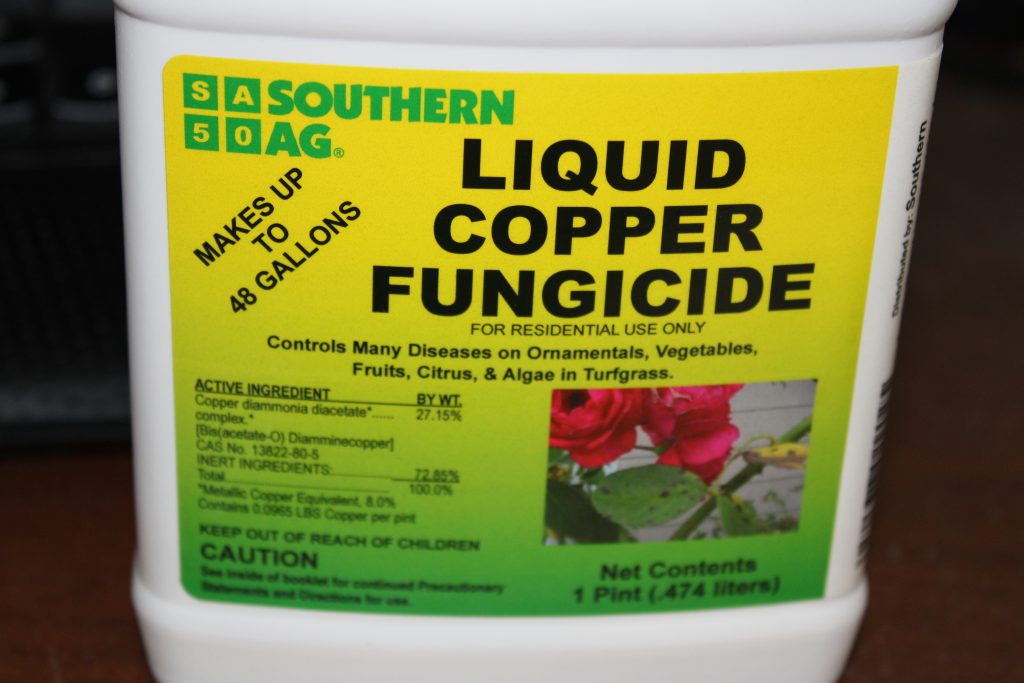
Now here is where you get some pragmatic gardening. Some copper fungicides are organic. It’s use of which is not acceptable to many of the disciples of the organic gardening community. So depending on who your organic guru is, you may or may not find that an acceptable solution.
Me, I tried being a hippy so now I’m going to be a farmer. I want my potatoes.
Conclusions on Curing Potato Blight
After all that, what do I feel about baking soda and aspirin? Well they both flunked the test. I will say that aspirin may work since I think it was a study over 40 days and I gave mine 4. So all I got from it was some sicker plants. I think I will give an aspirin spray another chance. If I can find the journal, I would love to read about the results. While it might be useless against blight that does not mean that it is useless.
*6/1/2021 Corrected an error about Copper Fungicides. The Southern Ag noted in the picture is not organic according to the OMRI updated on 6/1/2021. I was researching a chemical and realized I was incorrect in the post. To my knowledge there are no copper diammonia diacetate complex based fungicides that fall under the organic banner. Copper Sulfate is generally organic. If you want a Southern Ag production that is ok for organic use, use their Garden Friendly Fungicide.
